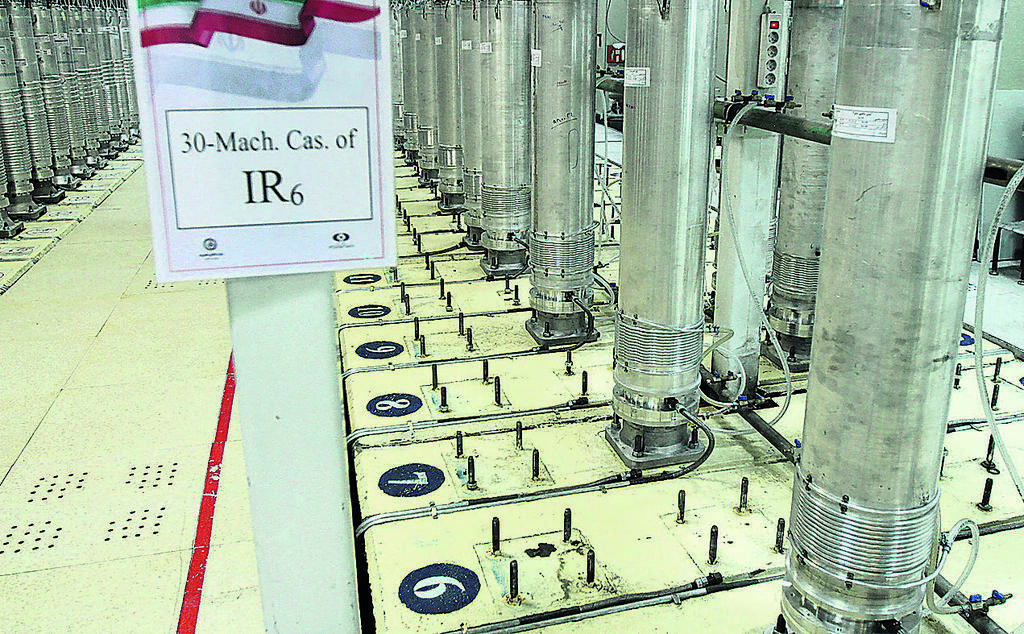Getting your Trinity Audio player ready...
Russia is emerging as a potential linchpin in renewed international efforts to limit Iran’s nuclear ambitions, with Moscow being considered both as a possible host for Iran’s enriched uranium stockpile and as a guarantor of any new agreement’s enforcement.
The new round of indirect U.S.-Iran nuclear talks, held Saturday in Rome under Omani mediation, showed “significant progress,” according to U.S. officials.
3 View gallery


Donald Trump, Vladimir Putin, Ali Khamenei
(Photo: KHAMENEI.IR / AFP, Sergei BOBYLYOV / POOL / AFP, AP Photo/Evan Vucci)
Further technical discussions are planned this week in Geneva, followed by high-level diplomacy in Oman next weekend. The talks come amid threats from U.S. President Donald Trump, who has warned that unless a deal is reached quickly, he would consider military action to prevent Iran from acquiring nuclear weapons.
Trump’s special envoy, Steve Witkoff, who led the Rome discussions, is pushing for an agreement within 60 days. However, Iranian Foreign Minister Abbas Araghchi has expressed skepticism, citing deep distrust and the complex technical nature of the negotiations.
Two major obstacles remain: how to dispose of Iran’s highly enriched uranium stockpile, and what guarantees can be provided if the U.S. violates a new agreement. While Iran insists on retaining its stockpile domestically, Washington prefers either its destruction or relocation to a third country — with Russia among the leading options.
Witkoff reportedly walked back earlier social media comments suggesting the U.S. aimed to completely dismantle Iran’s nuclear program. “There had been some conflicting messages... and that was not at all what Araghchi had agreed,” said Mohamed Amersi of the Wilson Center. He added, “If he had not got that assurance it’s likely the whole negotiation would have... ended immediately.”
3 View gallery


Steve Witkoff, Abbas Araghchi
(Photo: REUTERS/Evelyn Hockstein/Pool, Amer HILABI AFP, CameraObscura82/Shutterstock, Smolkov Vladislav/Shutterstock)
Iran is also seeking mechanisms to hold the U.S. accountable if it unilaterally reimposes sanctions, as Trump did in 2018. A treaty ratified by the U.S. Congress is Iran’s preferred option, but negotiators admit that may be politically unfeasible. Alternatives under discussion include financial penalties or allowing Russia to return Iran’s uranium stockpile if the U.S. breaks the deal.
Such a framework could shift the balance of power in nuclear oversight away from Europe, freezing out current 2015 deal guarantors Germany, France and the UK, while also sidelining the UN's role — an outcome both Washington and Tehran reportedly prefer.
Get the Ynetnews app on your smartphone: Google Play: https://bit.ly/4eJ37pE | Apple App Store: https://bit.ly/3ZL7iNv
Rome was chosen partly for its political symbolism, with Italian Prime Minister Giorgia Meloni seen as a potential mediator with Trump should the talks falter. A proposed meeting between Araghchi and U.S. Vice President JD Vance was ultimately shelved as premature.
The negotiations are part of a broader diplomatic push by Trump’s team, which is simultaneously engaged in efforts involving Hamas-Israel and Russia-Ukraine. “Whatever you may think of Iran, they are rational actors, and they are more likely to strike a deal,” a source close to the talks said.
Iran entered the negotiations bolstered by a high-profile visit from the Saudi defense minister to Tehran, signaling Saudi opposition to any unilateral U.S.-Israeli strike on Iran’s nuclear facilities.
The Omani foreign ministry said the goal of the negotiations is to achieve “a fair, sustainable and binding agreement… to ensure that Iran is completely free of nuclear weapons and sanctions, while preserving its right to develop nuclear energy for peaceful purposes.”


